INTRODUCTION
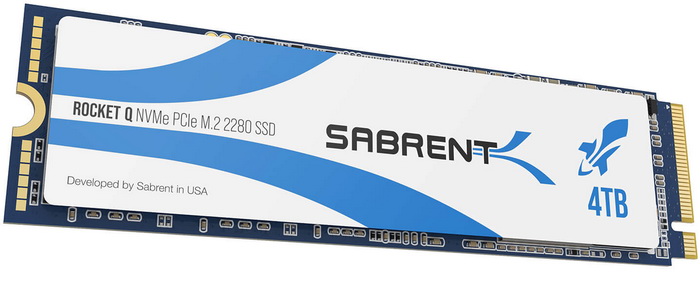
Believe or not even though PCIe 4.0 compatible solid state drives (and even graphics cards) are far from many in number currently PCIe 5.0 is actually coming very soon. Just for the record even though PCIe 4.0 supports speeds of up to 8GB/s PCIe 5.0 supports double that, meaning up to 16GB/s (theoretical numbers always) so we should see M.2 NVMe SSDs with speeds up to 14-15000MB/s even inside 2022. Still for the majority of users these speeds come second to capacity which makes sense considering that even 3000-3500MB/s (PCIe 3.0) is clearly more than enough for daily use, at least for 90% of the entire consumer base. The Rocket Q by Sabrent was the very first consumer oriented M.2 NVMe SSD to breach the 8TB barrier (review here) but since many of you reached out and asked for a review of the 4TB variant that's what I’ll be testing today.
Sabrent is a leading American manufacturer of computer peripherals and accessories, bringing uniquely styled quality products to consumers worldwide. Sabrent’s commitment is to offer the latest technology and the highest quality consumer electronic products at an affordable cost to everyone. Since its founding, Sabrent has consistently delivered to market a full line of computer peripherals and accessories that incorporate style, quality and the latest technologies available.
Just like both the 2TB and 8TB variants the Rocket Q 4TB uses 96-layer QLC (quad-level cell) NAND flash memory by Micron along with 8GB of DDR3L DRAM by Nanya (4TB model) and of course the E12S eight-channel (32 CE targets) controller (RKT-303 as Sabrent likes to call it) by Phison which sports several current technologies like SLC caching, StrongECC, SmartRefresh, SmartFlush, LDPC (low density parity check), end-to-end data protection, thermal monitoring, AES-256 encryption, ONFi 2.3/3.0/3.2/4.0 and TCG Pyrite/OPAL support. As for endurance numbers Sabrent reports an MTBF (meantime between failure) of 1.8 million hours with a TBW (Terabytes Written) of 940 (the entire Rocket Q line of SSDs is covered by a 5-year limited warranty via online registration).
SPECIFICATIONS AND FEATURES

PACKAGING AND CONTENTS
The Rocket Q 4TB SSD gets shipped in a small cardboard box that has a product picture at the front right beneath the company logo, the drive capacity and next to an Acronis sticker (you can download this cloning software directly from Sabrent's support page).
Another product picture is printed at the rear right over several certifications and a sticker with the serial number and barcode.

 Removing the exterior cover reveals a very elegant aluminum box.
Removing the exterior cover reveals a very elegant aluminum box.
As mentioned in previous reviews Sabrent has went the extra mile to create one of the best looking SSD packages I’ve seen.
Still inside you will only find the Rocket Q SSD and the user manual.
THE ROCKET Q 4TB
Typically, the Sabrent Rocket Q 4TB SSD follows the M.2 2280 form factor (22mm wide and 80mm long).
At the top we find the same thick copper sticker as with all the other variants.
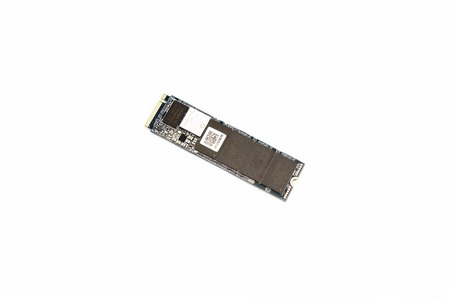

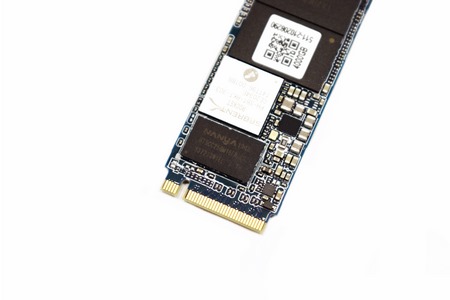 On the top of the PCB we find the Phison E12S NAND controller, 4GB DDR3L DRAM package by Nanya (always according to Sabrent) and four Micron 96-layer QLC NAND flash modules (512GB each).
On the top of the PCB we find the Phison E12S NAND controller, 4GB DDR3L DRAM package by Nanya (always according to Sabrent) and four Micron 96-layer QLC NAND flash modules (512GB each).
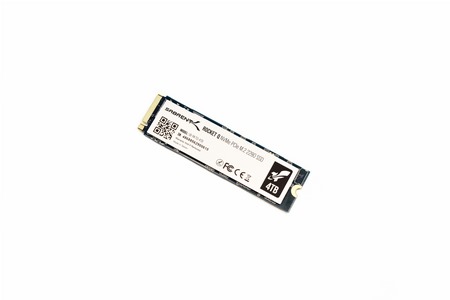
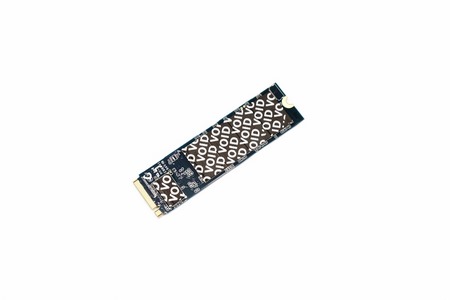
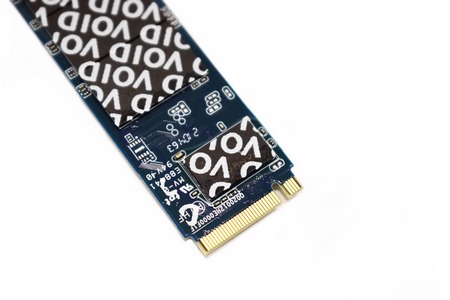 This is a dual side model and so on the other side of the PCB we find another 4GB DDR3L DRAM package and four extra Micron 96-layer QLC NAND flash modules (512GB each) all underneath a sticker with the serial number, capacity and a 2D barcode (product warranty is clearly void if you remove this sticker).
This is a dual side model and so on the other side of the PCB we find another 4GB DDR3L DRAM package and four extra Micron 96-layer QLC NAND flash modules (512GB each) all underneath a sticker with the serial number, capacity and a 2D barcode (product warranty is clearly void if you remove this sticker).
ROCKET CONTROL PANEL
The rocket control panel software allows you to check the status of your SSD, its SMART page and of course check online for new firmware updates (none found at the time of this review).
TEST BED
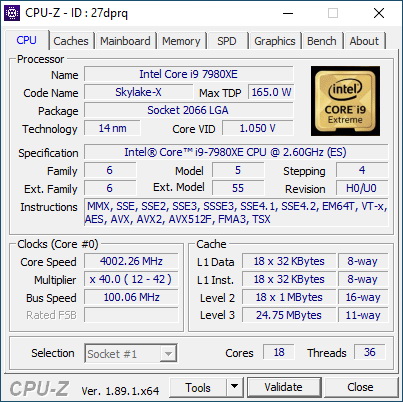

TESTING METHODOLOGY
After almost 13 years of testing solid state drives, i’ve concluded that it's almost impossible for any single benchmark suite to accurately measure their performance and that's why in certain benchmark suites we see amazing read/write performance numbers with some drives while in others things are quite different. The reason behind this is that some benchmarking suites are configured to read and write random chunks of data while others read and write constant (sequential) ones. So that's why i always use a very wide selection of benchmarking suites including AIDA64, HD Tach RW, HD Tune Pro, Crystal Disk Mark, Sisoftware Sandra Pro, AS SSD, IOmeter and ATTO. To get the most accurate results each test gets repeated a total of 6 times with the average performance numbers recorded into our charts*. Also, as of February 25th 2015 our results will also include the Storage Networking Industry Association’s (SNIA) IOMeter tests. These tests include a 12 Hour write test used to “simulate” performance degradation over time and a mixed workload test which basically shows what you can expect when using an SSD continuously for roughly two hours. Unfortunately, due to the time required for these tests we repeat them a total of 3 times and not 6 as the above.
Many people have made inquiries about our charts in the past so once again please do keep in mind that the Charts have the average performance numbers of each drive recorded and not the peak (highest) ones. Also, although every single one of these programs can help potential buyers choose the right drive for their needs you should also remember that from any kind of benchmark up to real world usage the gap is not small (and usually most differences will go unnoticed by most people). All tests were performed in a fresh Windows 10 Pro x64 installation complete with every update up to the date of this review.
* Since November 2018 the SSD comparison charts have been divided to 2.5” and M.2 models to reduce their growing size.
** Unless stated otherwise the Ryzen 9 3950x based Test Rig used for M.2 Gen 4 SSD reviews is not located in the lab.
*** As of January 2021 for Gen 3x4 models I’ll be using the Core i9-7980XE test rig (after numerous tests the up to 6% difference in read & write performance compared to the i7-6700 system simply wasn’t enough to justify having an extra test rig around).
TEST RESULTS - AIDA64 / ATTO
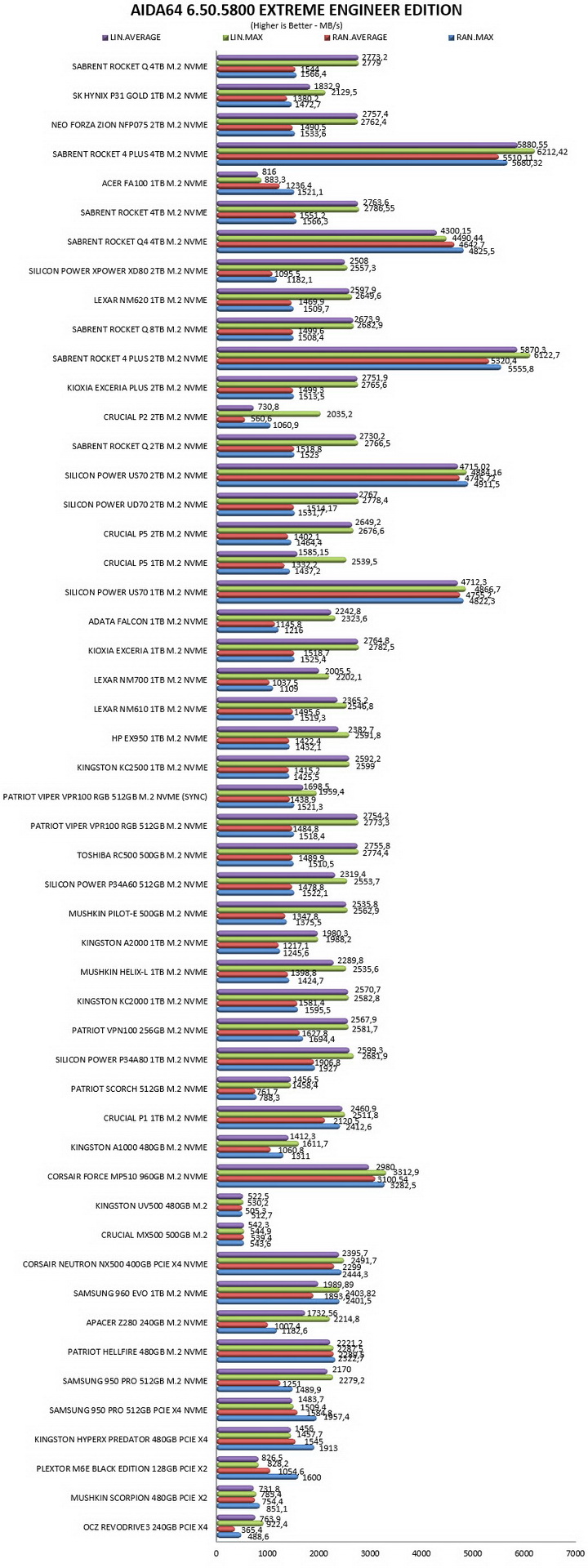

TEST RESULTS - HD TACH RW / HD TUNE PRO
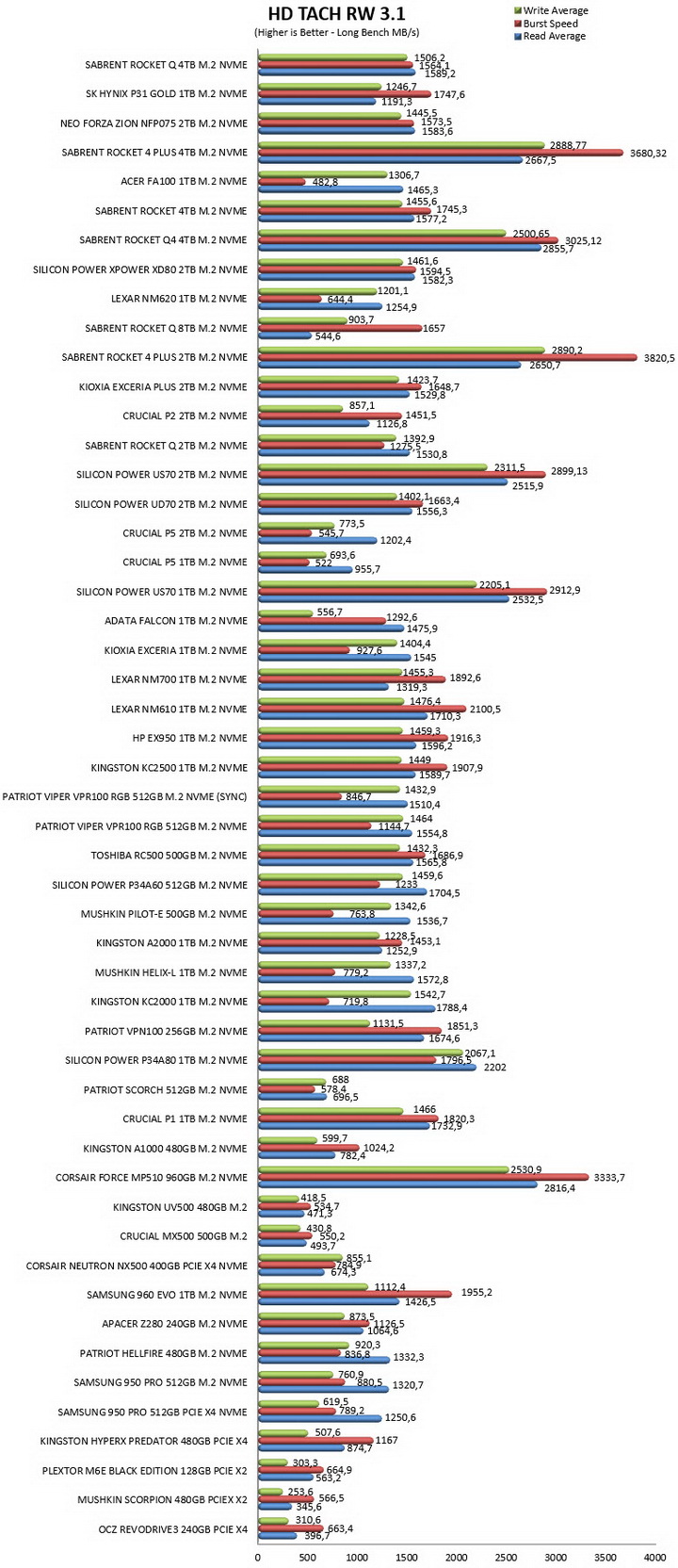

TEST RESULTS - SISOFTWARE SANDRA PRO / CRYSTAL DISK MARK


TEST RESULTS - AS SSD / IOMETER

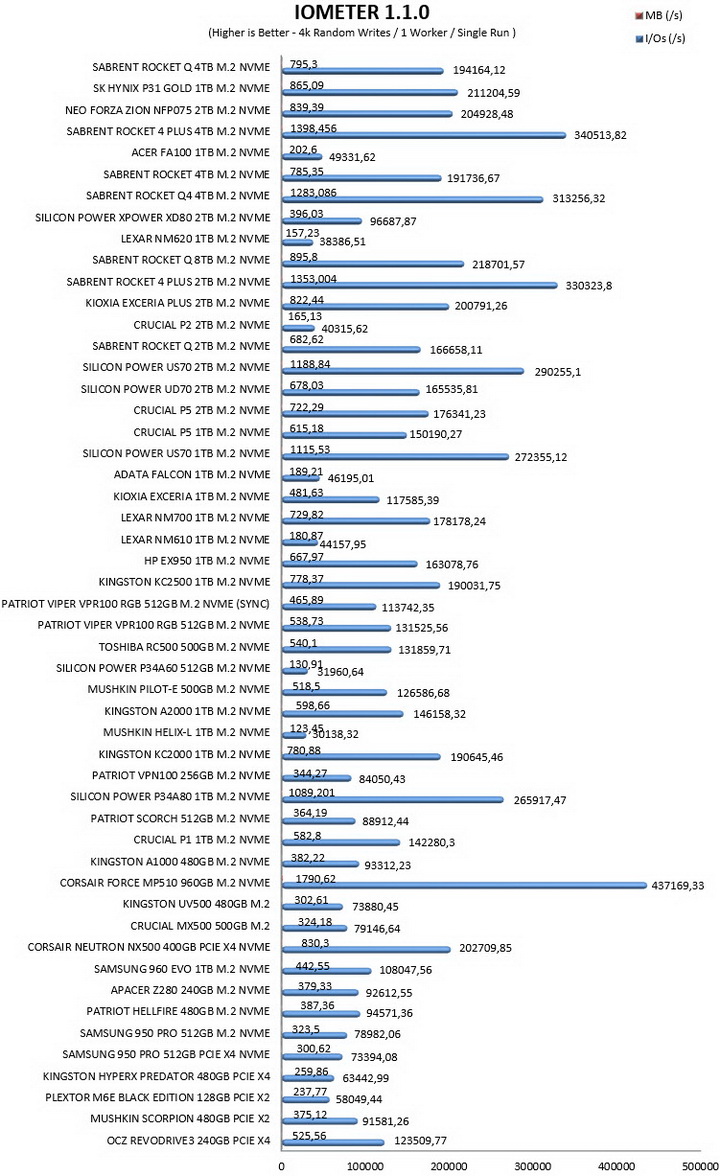
TEST RESULTS - IOMETER SNIA
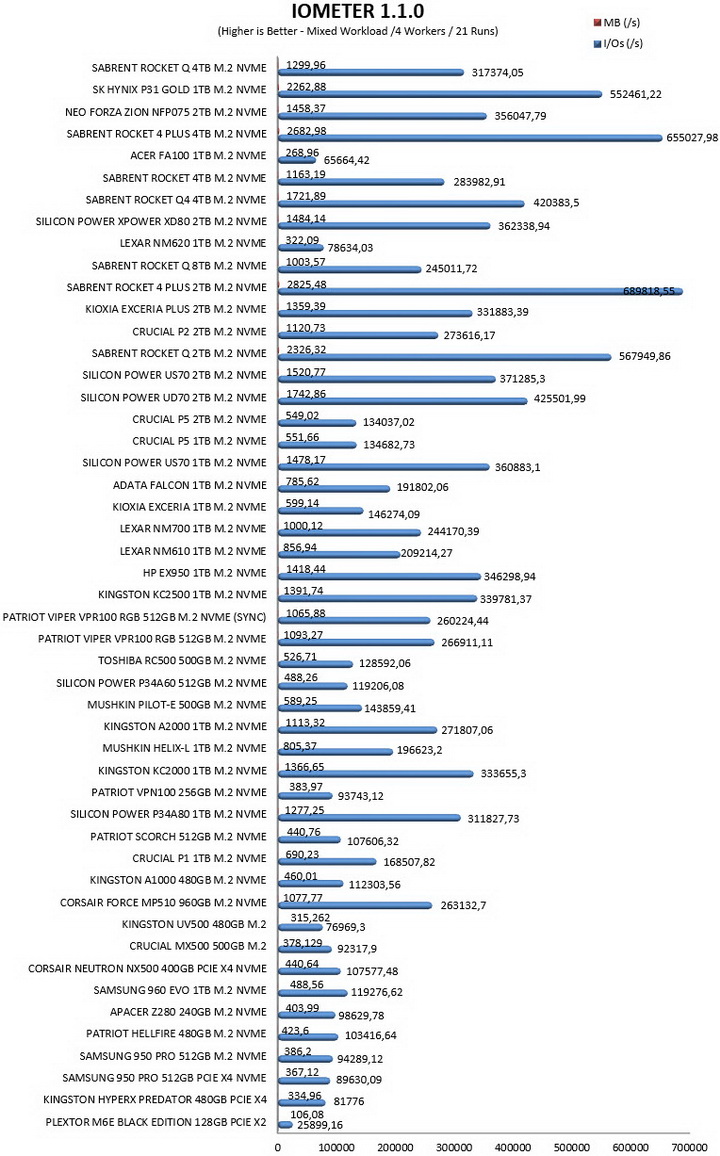
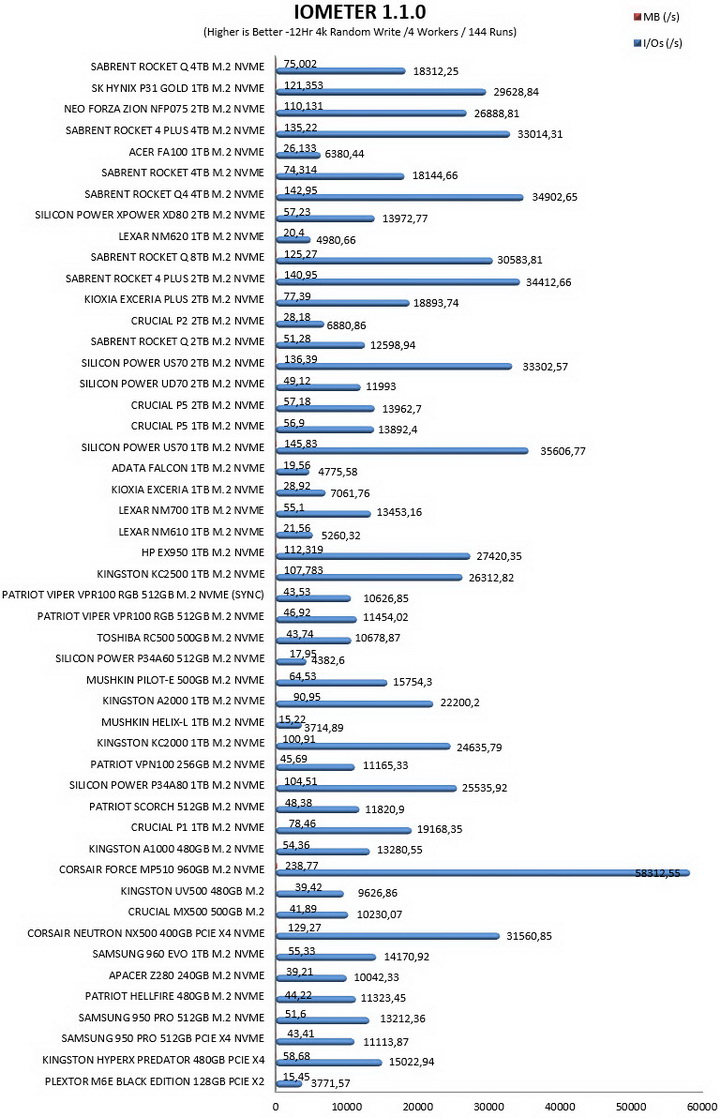

CONCLUSION
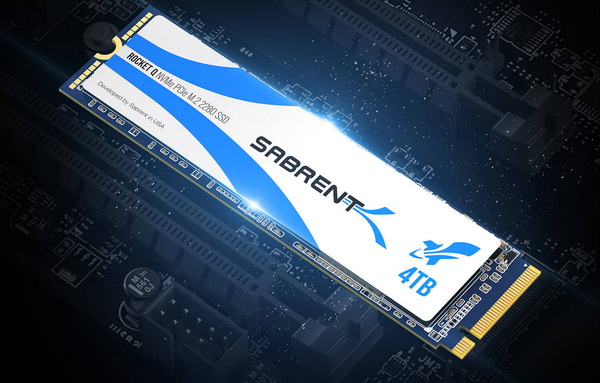
The Rocket Q line may contain one of the highest capacity SSDs in the market today (8TB) but especially due to recent price hikes the 4TB variant could represent a much better choice for most people, overall, that is. Yes, it may be half in terms of available capacity but even 4TB should be plenty for most people (at least to store things that need the performance levels of an SSD). With the exception of 2 IOMeter tests performance is actually slightly better so that too is something that may appeal to potential buyers. The top copper sticker may not be the best choice when it comes to cooling but it does help and it’s certainly better than nothing at all (which is what you get with most M.2 NVMe models).
Right now, the Sabrent Rocket Q 4TB M.2 NVMe SSD retails for USD599.98 inside the USA (Amazon.com) and for 549.99Euros inside the EU (Amazon.de), a price tag that puts it among the most expensive models of its type at that exact capacity. The good news is that the Rocket Q does very well in terms of performance and certainly better than most similar models so that too should matter to people (on the other hand it’s obviously not the fastest 4TB M.2 NVMe SSD out there, especially with the arrival of PCIe 4.0 models). At the end of the day if you're in no need for the performance increase offered by PCIe 4.0 (gen 4) models the Rocket Q is a very good choice across the board and for that it deserves the Golden Award.

PROS
- Among the Fastest Gen3x4 Models in The Market Today (Up To 3200MB/s Read & 3000MB/s Write)
- 1.8 Million Hours MTBF / 940TBW
- 4TB Capacity (Available Up To 8TB)
- 5 Year Warranty (After Online Registration)
- Limited Thermal Throttling (Thick Copper Sticker)
CONS
- Price (For Some)

 O-Sense
O-Sense





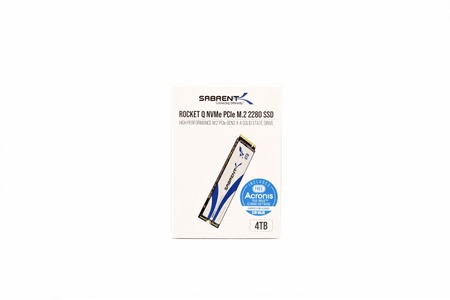
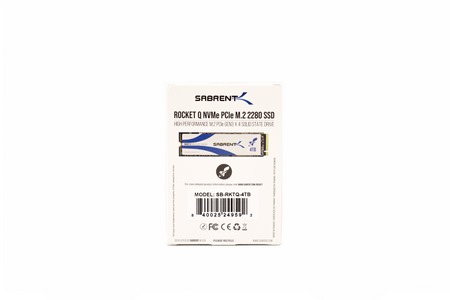
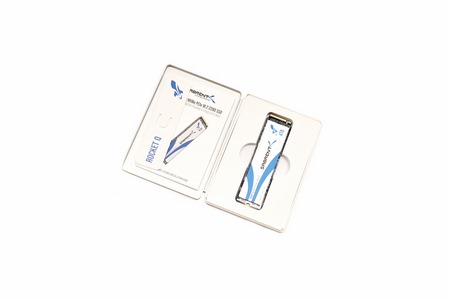
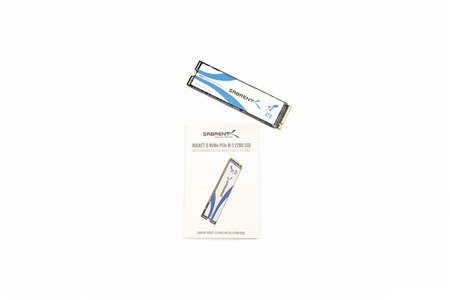


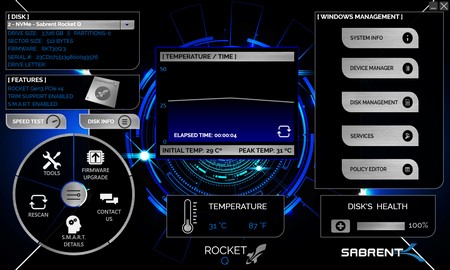
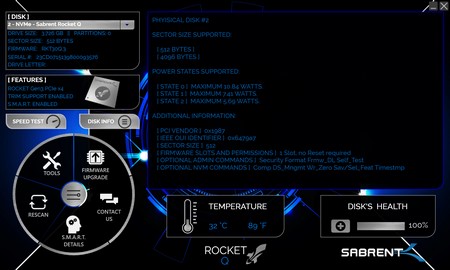


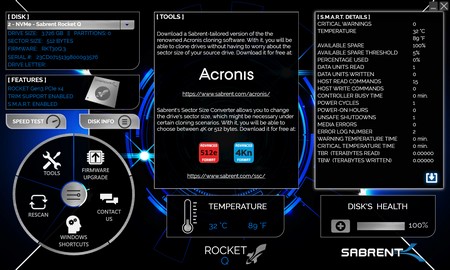


.png)

